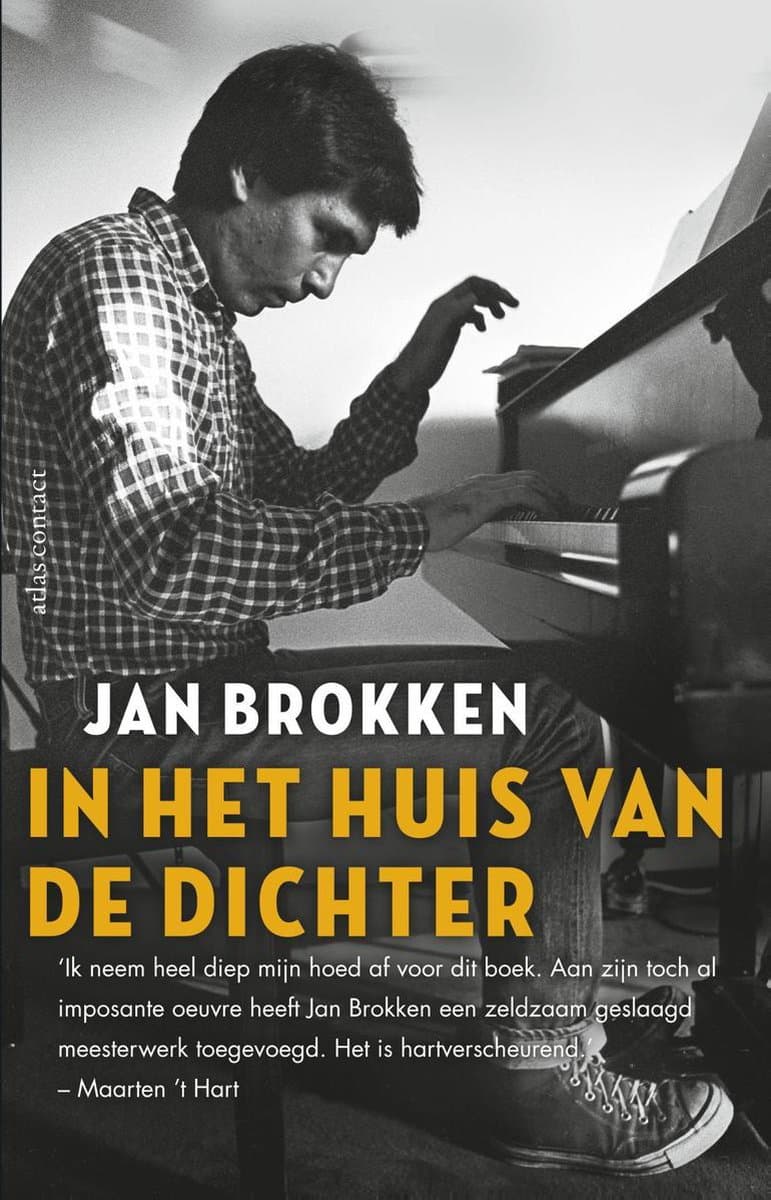In the House of the Poet
Russian concert pianist Youri Egorov (1954-88) was a cult hero. Jan Brokken got to know Egorov in the 1970s when he travelled with him for a magazine article that he was to write to a performance in England. Egorov’s playing was out of this world but he was agitated by the orchestra’s indifference: ‘Not one spark of enthusiasm, I can’t stand that.’

The young pianist, a child prodigy, had fled Russia aged twenty-two for fear his homosexuality would be discovered (also to the embarrassment of his family), and requested asylum in the Netherlands. In Amsterdam he was soon living with a friend on the Brouwersgracht, the centre of a small circle of admirers and friends. In het huis van de dichter (In the House of the Poet) is described as a novel – and it reads as easily as one – but in fact it is a true account (based on real events and on the letters and diary entries that Egorov wrote as he desperately waited for a decision on his asylum application) of Egorov’s tormented life. He was consumed by homesickness. Wherever he was, at whichever venue he was performing, no matter how welcome he felt in Amsterdam, he could never free himself from his longing for his family and his fatherland. ‘Russia was always slipping past, like a sleigh along the canal.’
After writing his article, Brokken became friends with Egorov and experienced at close hand almost everything he went through in his tempestuous career and tragic life. The pianist encouraged the writer – who had meanwhile made his debut with the beautifully written novel De provincie (The Province) and devoted himself to literature – to do something with the material. Egorov wrote sternly to Brokken on a card, ‘You must write a) about music b) about Russia c) about yourself and d) about me.’ Brokken stuck to that assignment. There are few books in which, through the story of a musician, music itself is portrayed so arrestingly, audibly almost.
“Moving because Brokken brings Egorov to life, fascinating for the way he sketches with crystal clarity the artistic milieu of the 1980s, and admirable because he writes about music like no one else.”
Egorov’s high and low points are described from close by: the love affairs, the drugs and the drink and, above all, the nerve-wracking recitals. Yet Brokken, a heterosexual and non-user, was able to remain aloof and his book benefits hugely from that objectivity. The story of Egorov, right up to his death by his own hand as his AIDS accelerated, is told in detail and with a great sense of kinship, but is never hagiographic. ‘One day he said to me, “I’m young, I’m special, I’m bursting with vitality and I’m going to die.” And he added, “You know that, right?” Yes, I knew that.’ In het huis van de dichter provides an insight, as intimate as it is profound, into a talented, capricious and tragic life that ended far too soon.
“The power of this book lies in the manner, no less affectionate than it is candid, in which Brokken endeavours to get close to Egorov.”
“I profoundly take my hat off to this book. Jan Brokken has added an exceptionally successful masterpiece to his already impressive oeuvre.”
